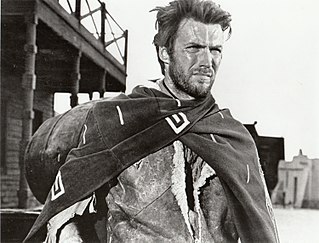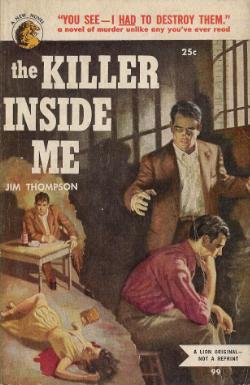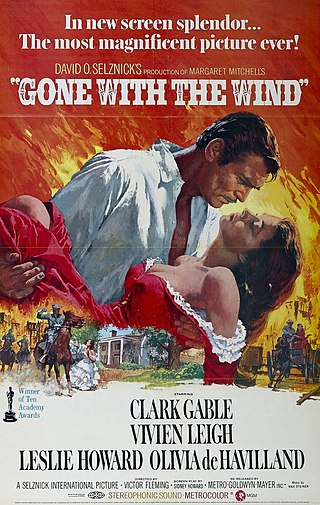
Comedy film is a film genre that emphasizes humor. These films are designed to amuse audiences and make them laugh. Films in this genre typically have a happy ending, with dark comedy being an exception to this rule. Comedy is one of the oldest genres in film, and it is derived from classical comedy in theatre. Some of the earliest silent films were slapstick comedies, which often relied on visual depictions, such as sight gags and pratfalls, so they could be enjoyed without requiring sound. To provide drama and excitement to silent movies, live music was played in sync with the action on the screen, on pianos, organs, and other instruments. When sound films became more prevalent during the 1920s, comedy films grew in popularity, as laughter could result from both burlesque situations but also from humorous dialogue.

A film genre is a stylistic or thematic category for motion pictures based on similarities either in the narrative elements, aesthetic approach, or the emotional response to the film.

Crime fiction, detective story, murder mystery, mystery novel, and police novel are terms used to describe narratives that centre on criminal acts and especially on the investigation, either by an amateur or a professional detective, of a crime, often a murder. It is usually distinguished from mainstream fiction and other genres such as historical fiction or science fiction, but the boundaries are indistinct. Crime fiction has several subgenres, including detective fiction, courtroom drama, hard-boiled fiction, and legal thrillers. Most crime drama focuses on crime investigation and does not feature the courtroom. Suspense and mystery are key elements that are nearly ubiquitous to the genre.

Thriller is a genre of fiction with numerous, often overlapping, subgenres, including crime, horror, and detective fiction. Thrillers are characterized and defined by the moods they elicit, giving their audiences heightened feelings of suspense, excitement, surprise, anticipation and anxiety. This genre is well suited to film and television.
True crime is a nonfiction literary, podcast, and film genre in which the author examines a crime and details the actions of people associated with and affected by criminal events. It is a cultural phenomenon that can refer to the promotion of sensationalized and emotionally charged content around the subject of violent crime, for the general public. Many works in this genre recount high-profile, sensational crimes such as the killing of JonBenét Ramsey, the O. J. Simpson murder case, and the Pamela Smart murder, while others are devoted to more obscure slayings.

Crime films, in the broadest sense, is a film genre inspired by and analogous to the crime fiction literary genre. Films of this genre generally involve various aspects of crime and its detection. Stylistically, the genre may overlap and combine with many other genres, such as drama or gangster film, but also include comedy, and, in turn, is divided into many sub-genres, such as mystery, suspense or noir.

A mystery film is a film that revolves around the solution of a problem or a crime. It focuses on the efforts of the detective, private investigator or amateur sleuth to solve the mysterious circumstances of an issue by means of clues, investigation, and clever deduction. Mystery films include, but are not limited to, films in the genre of detective fiction.
Neo-noir is a revival of film noir, a genre that had originally flourished during and after World War II in the United States—roughly from 1940 to 1960. During the late 1970s and the early 1980s, the term "neo-noir" surged in popularity, fueled by movies such as Sydney Pollack's Absence of Malice, Brian De Palma's Blow Out, and Martin Scorsese's After Hours. The French term film noir translates literally to English as "black film", indicating sinister stories often presented in a shadowy cinematographic style. Neo-noir has a similar style but with updated themes, content, style, and visual elements.
Hardboiled fiction is a literary genre that shares some of its characters and settings with crime fiction. The genre's typical protagonist is a detective who battles the violence of organized crime that flourished during Prohibition (1920–1933) and its aftermath, while dealing with a legal system that has become as corrupt as the organized crime itself. Rendered cynical by this cycle of violence, the detectives of hardboiled fiction are often antiheroes. Notable hardboiled detectives include Dick Tracy, Philip Marlowe, Nick Charles, Mike Hammer, Sam Spade, Lew Archer, Slam Bradley, and The Continental Op.

Noir fiction is a subgenre of crime fiction.
The heist film or caper film is a subgenre of crime films and the caper story, focused on the planning, execution, and aftermath of a significant robbery.

This is chronological list of thriller films split by decade. Often there may be considerable overlap particularly between thriller and other genres ; the list should attempt to document films which are more closely related to thriller, even if it bends genres.

Poliziotteschi constitute a subgenre of crime and action films that emerged in Italy in the late 1960s and reached the height of their popularity in the 1970s. They are also known as polizieschi all'italiana, Italo-crime, spaghetti crime films, or simply Italian crime films. Influenced primarily by both 1970s French crime films and gritty 1960s and 1970s American cop films and vigilante films, poliziotteschi films were made amidst an atmosphere of socio-political turmoil in Italy known as Years of Lead and amidst increasing Italian crime rates. The films generally featured graphic and brutal violence, organized crime, car chases, vigilantism, heists, gunfights, and corruption up to the highest levels. The protagonists were generally tough working class loners, willing to act outside a corrupt or overly bureaucratic system.
The following outline is provided as an overview of and topical guide to film:

Tech-noir is a hybrid genre of fiction, particularly film, combining film noir and science fiction, epitomized by Ridley Scott's Blade Runner (1982) and James Cameron's The Terminator (1984). The tech-noir presents "technology as a destructive and dystopian force that threatens every aspect of our reality".
AFI's 10 Top 10 honors the ten greatest American films in ten classic film genres. Presented by the American Film Institute (AFI), the lists were unveiled on a television special broadcast by CBS on June 17, 2008. In the special, various actors and directors, among them Clint Eastwood, Quentin Tarantino, Kirk Douglas, Harrison Ford, Martin Scorsese, Steven Spielberg, George Lucas, Roman Polanski, and Jane Fonda, discussed their admiration for and personal contributions to the films cited.
A prison film is a film genre concerned with prison life and often prison escape. These films range from acclaimed dramas examining the nature of prisons, such as A Man Escaped, Cool Hand Luke, Midnight Express, Brubaker, Escape from Alcatraz, The Shawshank Redemption, and Kiss of the Spider Woman to actioners like Lock Up and Undisputed, and even comedies satirizing the genre like Stir Crazy, Life, and Let's Go to Prison. Prison films have been asserted to be "guilty of oversimplifying complex issues, the end result of which is the proliferation of stereotypes". For example, they are said to perpetuate "a common misperception that most correctional officers are abusive", and that prisoners are "violent and beyond redemption".

In film and television, drama is a category or genre of narrative fiction intended to be more serious than humorous in tone. The drama of this kind is usually qualified with additional terms that specify its particular super-genre, macro-genre, or micro-genre, such as soap opera, police crime drama, political drama, legal drama, historical drama, domestic drama, teen drama, and comedy-drama (dramedy). These terms tend to indicate a particular setting or subject matter, or they combine a drama's otherwise serious tone with elements that encourage a broader range of moods. To these ends, a primary element in a drama is the occurrence of conflict—emotional, social, or otherwise—and its resolution in the course of the storyline.

Thriller film, also known as suspense film or suspense thriller, is a broad film genre that evokes excitement and suspense in the audience. The suspense element found in most films' plots is particularly exploited by the filmmaker in this genre. Tension is created by delaying what the audience sees as inevitable, and is built through situations that are menacing or where escape seems impossible.

A gangster film or gangster movie is a film belonging to a genre that focuses on gangs and organized crime. It is a subgenre of crime film, that may involve large criminal organizations, or small gangs formed to perform a certain illegal act. The genre is differentiated from Westerns and the gangs of that genre.













